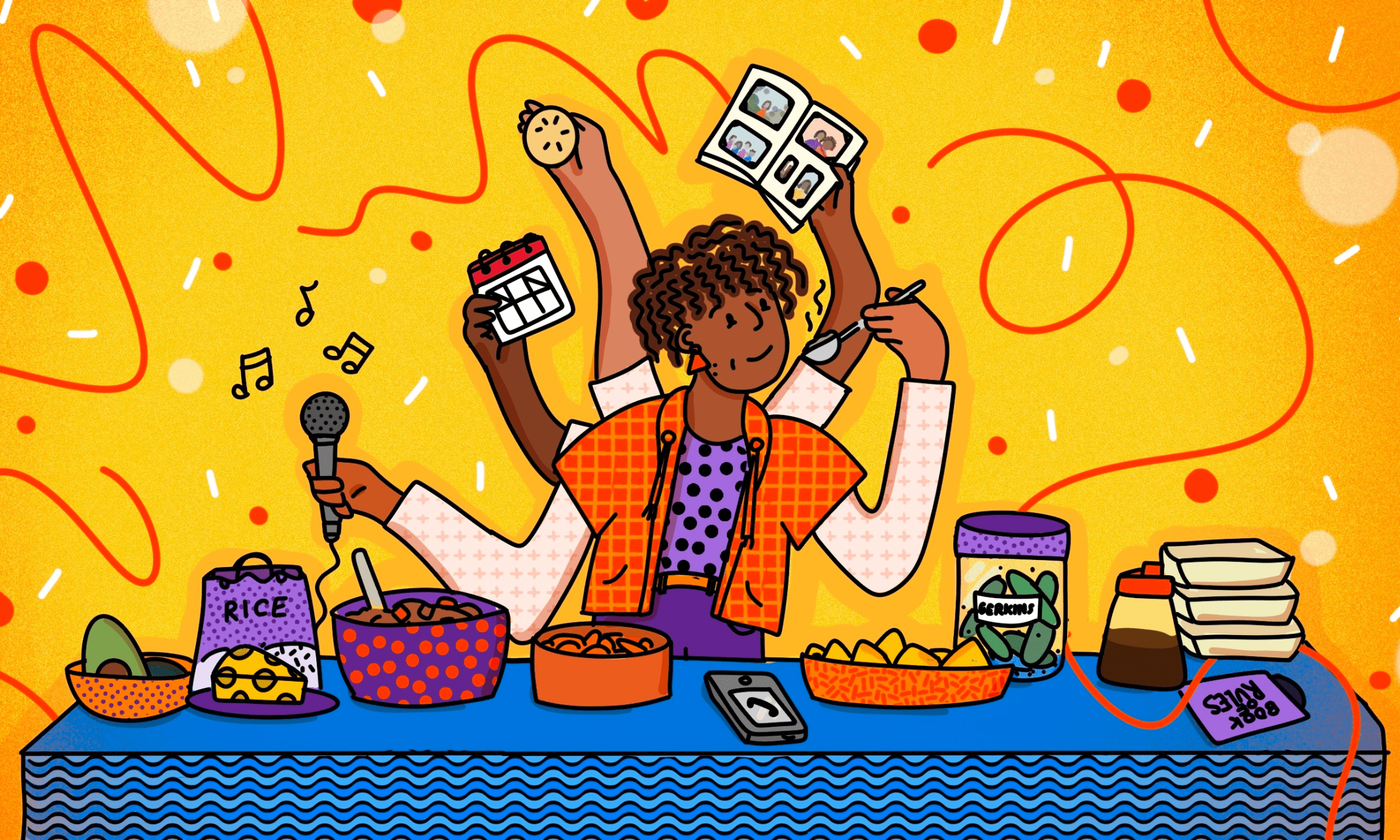The start of a new year may traditionally be a time for making new resolutions, but we at gal-dem wanted to share something different at the beginning of 2023. While January offers us an opportunity to reset and refresh, we also find comfort in long-held traditions that have kept us grounded as we’ve grown another year older.
Whether it’s creating music as a part of a community or making food in a moment of quiet, below the gal-dem team shares some of the meaningful habits and rituals that have kept us connected to heritage, family, friends and childhood memories throughout the years.
Diyora Shadijanova, Climate Editor
My family and I moved to the UK from Uzbekistan when I was 10, so I picked up on plenty of traditions in my childhood. One of these was the women in the family cooking together for significant events. I helped to pick purple basil in the garden, and my aunts taught me how to make tiny chuchvara dumplings and somsa.
Somsas are similar to the samosas found in South Asia, but the Uzbek ones are baked and not fried. The dough is carefully rolled out and folded in on itself repeatedly to make puff pastry. There are many fillings to choose from: pumpkin, lamb, potato, cheese and spinach. These are cooked with gently fried onion and seasoned with heavy amounts of cumin, salt and pepper.
“Whenever I feel the need to stay connected to my heritage, I buy a roll of puff pastry from a local supermarket, put some Uzbek music on and make the filling”
Whenever I feel the need to stay connected to my heritage, I buy a roll of puff pastry from a local supermarket, put some Uzbek music on and make the filling, cut the pastry, roll out the somsas and carefully stuff the filling, making sure they don’t burst in the oven. Finally, I bake them for 30-40 minutes. My recipe is a modified version, but it still brings me back to the days spent cooking with my family.
Esther Hooper, Commercial Producer
To flow through life maintaining a grasp on my roots and traditions is a journey I have aimed to keep. With West Indian Christian parents, my traditions held rituals towards their relationship with Christ. This manifested in daily prayers, praise and worship and acknowledging gratitude for the blessings in our lives with meditation to remain grounded and connected to ourselves through our faith.
I grew up in the church. My earliest memories bring me back to praise and worship, children’s church or just us as a family at home singing and praying together. In church my dad led the choir on keys, with my mom, sister and others in the worship team. Too shy to join on stage, I could bask in the presence of our community worshipping and singing from the sidelines and still feel connected. In our house, these practices continued intimately followed by speaking in tongues.
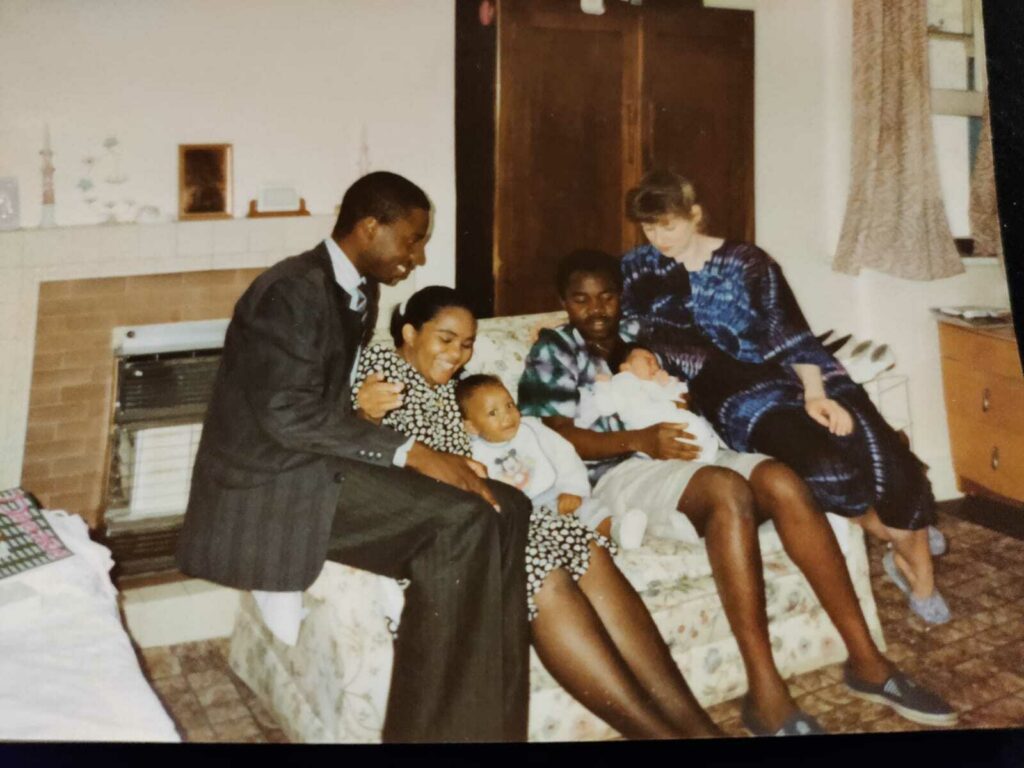
As an adult, I may not worship a god per se, but I am spiritual in my own way. My family aren’t close geographically, but worship has always been maintained on visits and cheeky FaceTime calls as we pray together and sing.
I’ve made it my mission to spend time with and stay connected to my family. As I’m very sentimental, visiting my family, taking pictures of them and of the unique characteristics each of their homes possess always keeps my heart full. To look through photo albums and listen to their stories and their memories helps me to see where I’ve come from through the vivid colours of their lenses. They keep me connected, not only to my heritage but to them as well.
Houda Fansa, Editorial Fellow
My life is a quilt made from coloured fabrics and each goes back to my heritage. These pieces are woven together by one strong thread: my tongue. It savours the traditional dishes I cook every few days, like Molokhia for dinner and Chickpea Fatté for the weekend, like I used to do in Syria. It also enjoys Kleicha, a traditional type of sweet eaten in Syria during festive times. It gets burned while drinking hot Arabic tea and coffee, a time characterised by vivid images of family and friends gathered in the garden or in front of the TV.
“Singing in a group is a synchronised act of love, solidarity and passion, but also an effective therapy”
But the best act my tongue enjoys is getting sounds out of my mouth. Speaking formal Arabic is one way and singing songs from the Arabic heritage is the other. The latter became a weekly ritual as a member of the Arabic Choir in London (our next performance will be in May 2023 at the Barbican). Singing as part of the choir in our shared language is an act of unity, showing how much our region offers when it comes to music and how proud I am to be a part of it. Singing in a group is a synchronised act of love, solidarity and passion, but also an effective therapy.
Riann Phillip, Editorial Assistant
I haven’t been to Trinidad for five years now. I sometimes forget the name of my grandparents’ street or the smell of the food van selling doubles and pholourie and it breaks my heart.
A piece of Trinidad is always with me though, through music. My steel pan playing is sacred to me (no that isn’t hyperbole) and I treat my weekly steel band practice like church. It’s how I stay grounded and connected to my Trinidadian heritage; one of the few things that have been a constant throughout my entire life, with family, friends and people I’ve known. I have always loved meeting on Friday nights, when we come together to practise, socialise and bring a little piece of Trinidad to Coventry.
Nadia Younes, Social Media Assistant
I’m going to go hyper-specific here. There’s a brand of pickled gherkins I remember from my childhood that we always had a jar of in the fridge, and that my dad still manages to find to this day (even in rural Glasgow).
I’ve made it a bit of a mission to seek out these extra special gherkins in each city I’ve lived in – to varying degrees of success. I’m lucky enough now that there’s a shop 10 minutes away from my flat in Manchester that sells them and I never have to be without my trusty gherkins again – although the shop staff clearly think I have a serious gherkin addiction.
They’re Durra’s pickled cucumbers (for those who would also like to seek them out) and they’re the tastiest, saltiest gherkins you’ll ever eat!
Suyin Haynes, Head of Editorial
One of my clearest, recurring memories from my childhood is getting the 119 bus from Bromley to Croydon with my mum. We’d usually go to Croydon for one of two reasons: to look around the clothes in Allders (RIP), or to go to Wing Yip in Purley Way.
The best way to describe Wing Yip is as a glorious cornucopia of every East and South East Asian food product you could possibly ever need under one chilly, warehouse-sized roof. Whether you’re in the market for bountiful bags of basmati rice in giant wholesale quantities, or bottles of Lao Gan Ma crispy chilli oil for the cupboard at home, you’re guaranteed to find pretty much anything and everything you need here.
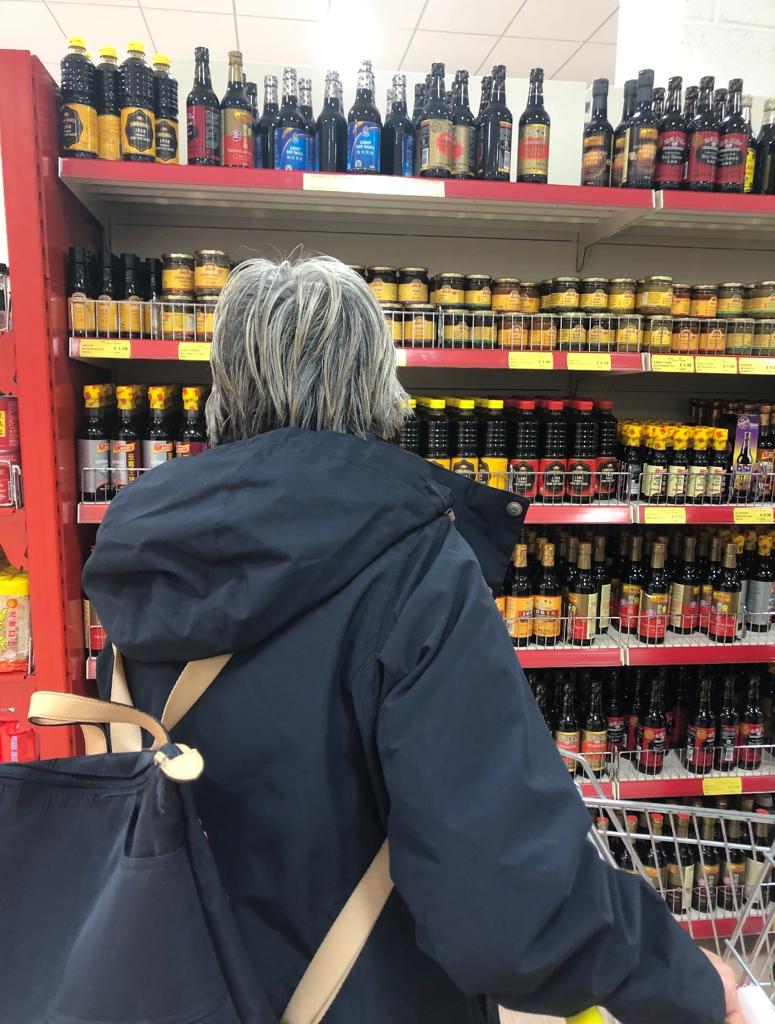
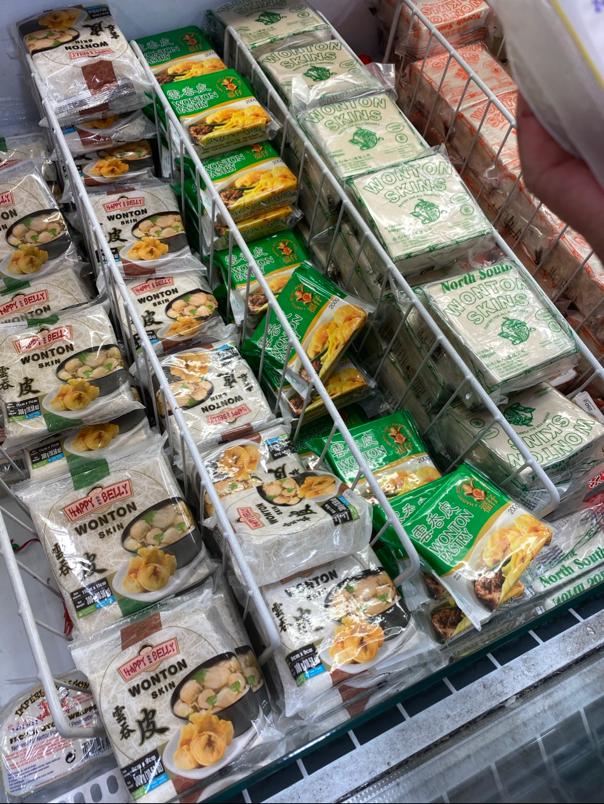
Now in adulthood, heading over to Wing Yip with my mum is something of an annual tradition in January, in the run up to the Lunar New Year. Shopping there together is as much about us discussing, debating and deciding what to put in the hotpot, as it is to whet our appetites for what’s to come.
Cheryl Telfer, Account Manager
Many traditional Ghanaian dishes make me feel connected to my heritage. However, my favourite is a breakfast/brunch dish called Tatale and Aboboi, a spicy plantain fritters and bean dish. I eat this only when my mum feels like treating us – I’m yet to master it.
The bean dish is made from Bambara beans, and I would go as far as to say there is no substitute for this type of bean. If you use another bean, it is no longer Aboboi. They are giant, starchy white beans with a distinct texture and taste. It’s a perfect brunch dish because it is sweet and savoury. Yes, the ripe plantains taste sweet; still, most Ghanaians will sprinkle sugar over the beans. Curious about how to make it? Here’s a recipe I can’t vouch for, but it looks similar to how my mum makes hers.
Naomi Larsson Piñeda, Senior Editor, Politics
People will often ask me what Chilean food is like. We neighbour Peru and Argentina – countries both known internationally for their exceptional cuisine, yet Chilean food doesn’t get the same recognition. There are, of course, some delicious and complex dishes, but the food I cherish the most, the simple taste that takes me back to Chile, is the completo. It’s just a hot dog, filled with a frankfurter or vegan sausage, topped with mashed avocado, diced tomatoes and mayonnaise. There are other styles of completo with different toppings, but for me, there’s nothing better than that green, red and white trio.
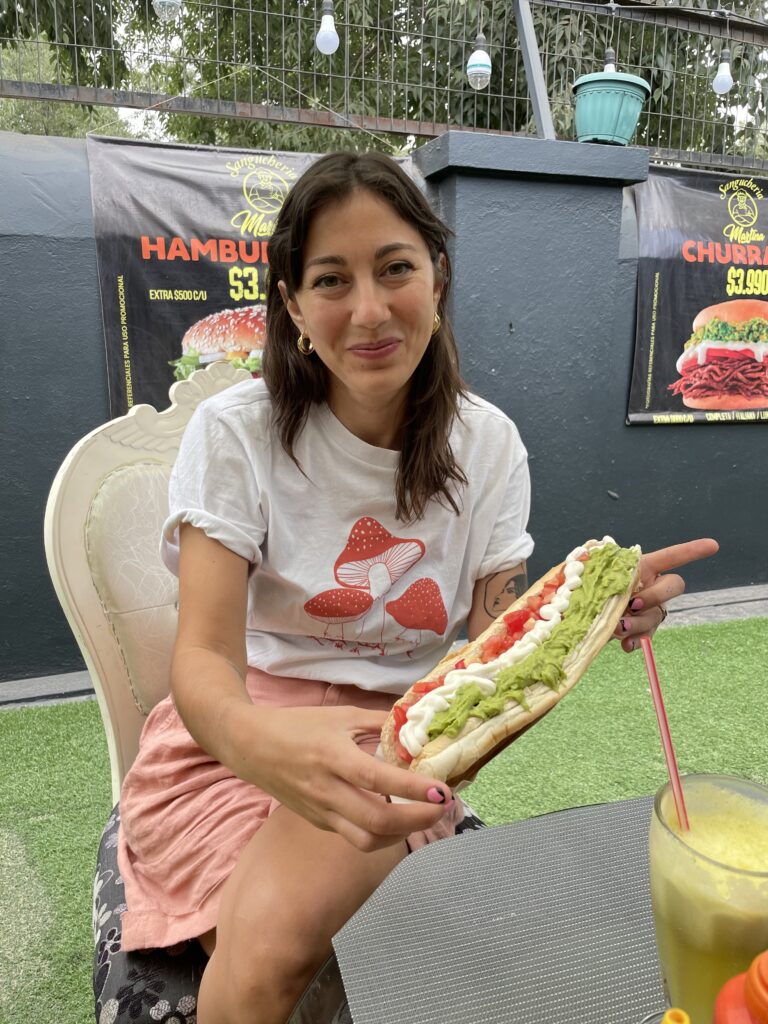
Growing up it would be a weekend treat, a source of comfort for all of us. I can hear my mum boil the frankfurter sausage in the kitchen while my sister and I watch TV. We’d take turns to mash the avocado and end up snacking on most of it. We’d eat together, struggling to get it in our mouths in one piece.
I will always love completos; I love their simplicity, the comfort they give me and how much Chileans love them.
Indigo Jordan Griffiths, Membership and Comms Assistant
Listening to records with my nan in the front room of my mum’s flat is a comforting experience like no other. We’re often accompanied by delicious food, courtesy of my nan, whose recipes I really must learn. In my house, family is synonymous with food and music. We love to eat, dance and sing raucously, however we always include a few slow, nostalgic records for my nan.
“We love to eat, dance and sing raucously, however we always include a few slow, nostalgic records for my nan”
‘Book of Rules’ by The Heptones is one of her favourites. It’s played at birthdays, Christmases and days when we’re all getting together simply for the joy of being with each other. I love to watch my nan sway to the song and often she’ll tell a story: reflecting on her childhood in Barbados or her experiences as part of the Windrush generation. In moments like these I am more in love and in awe of her than ever.
Rose Eskafi, Head of People and Operations
I was in my teens when my version of Farsi started sounding like hot potatoes in my mouth. It’s my first language but the more I responded to my parents in English, the further I strayed from rolling my r’s the right way, proverbial sayings and the rhythmic nature of one of the most poetic languages in the world.
Not only was this a waste of three years of Farsi school but it also limited how deeply I could communicate and connect to my parents during some pretty turbulent years. The older I got, the more I craved their storytelling. The more I found healing in reclaiming my heritage, the more confidence I found to speak my native tongue – despite how broken it was.
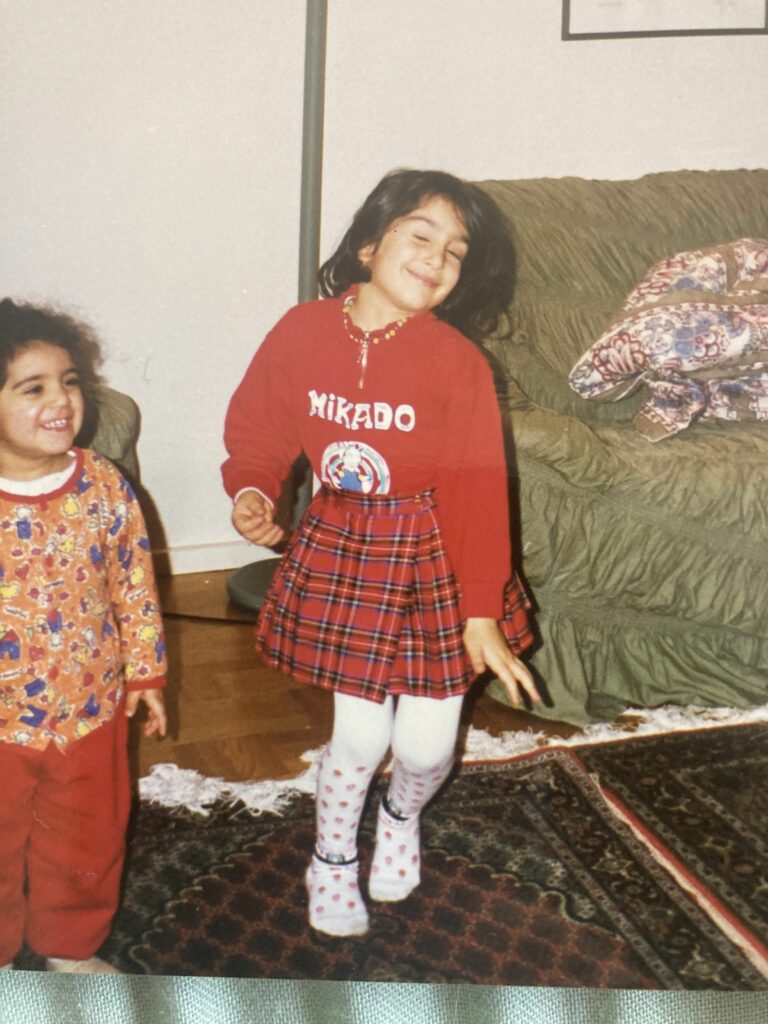
This desire to practise, deepened my sense of identity and allowed me to really see my parents from all angles. One of my favourite pastimes these days is to sit on Instagram and laugh at all the comments that I can now read and understand. My efforts also show up in real time when, instead of running away, I now happily FaceTime uncles and aunties in Iran – a dread I never thought I’d get over.
Katie Goh, First Person Editor
Fruit is how my family ends every single meal in Malaysia. The empty clay pots from dinner are cleared away and out come battered tupperware boxes, filled to the brim with diced melon, peeled pomelo moons and spiky rambutans shaken down from my grandparents’ garden tree. The plastic containers are handed around, along with tiny metal forks, and my grandparents, aunts and uncles sit for another few hours, talking and slurping down fresh, juicy tropical fruit from the equator.
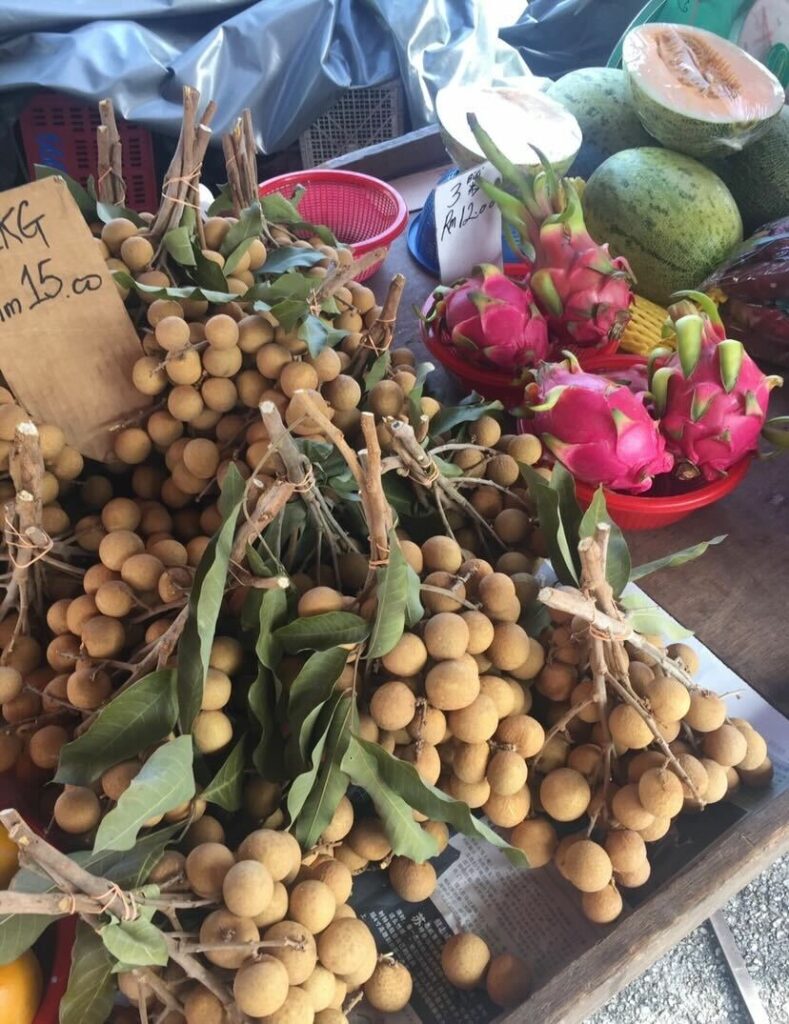
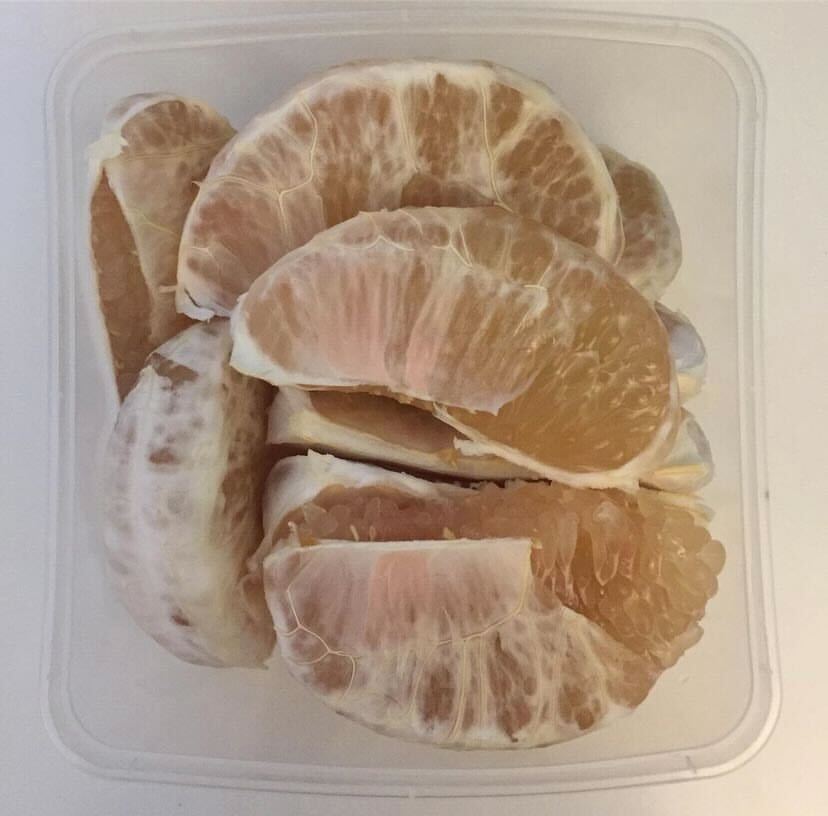
This after-dinner rite is one of my strongest memories of visiting Malaysia as a child: eating and sharing and sitting around either my aunt’s round table in Kuala Lumpur or my grandparents’ in Ipoh. There’s something about the sharing of the fruit that has created a sense memory in me: now, when I eat an orange or a pomelo alone, I still instinctively break it in half to share it with someone who’s absent. As an adult, I mark every Lunar New Year by going to my local Asian supermarket in Edinburgh. There I’ll find a tiny, yellow honey pomelo – so different from the enormous green type I associate with Malaysia. I’ll carry it carefully home and break it open, eat some and save the rest in old takeaway plastic boxes, ready to be offered out to friends.
The contribution of our members is crucial. Their support enables us to be proudly independent, challenge the whitewashed media landscape and most importantly, platform the work of marginalised communities. To continue this mission, we need to grow gal-dem to 6,000 members – and we can only do this with your support.
As a member you will enjoy exclusive access to our gal-dem Discord channel and Culture Club, live chats with our editors, skill shares, discounts, events, newsletters and more! Support our community and become a member today from as little as £4.99 a month.

